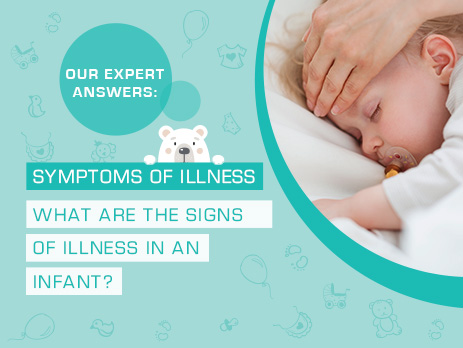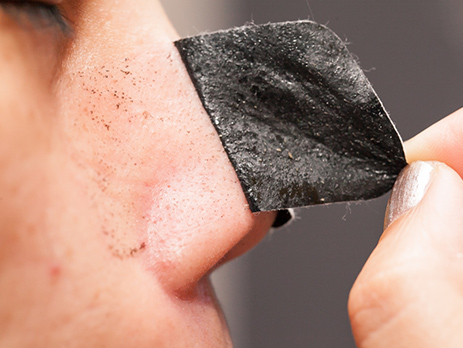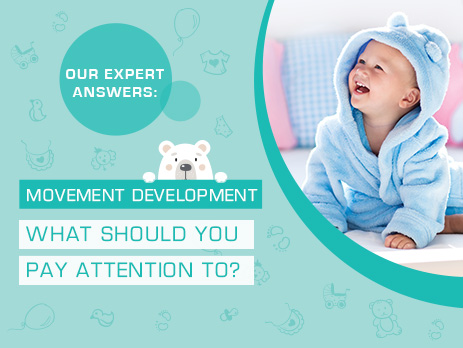Common symptoms of illness in infants
IN THIS ARTICLE:
What are the objective signs of illness in an infant?
What could be the subjective signs of illness in an infant?
What are misleading signs that do not necessarily indicate illness?
How to recognize an illness?
Useful tips for managing illness.
Recognizing illnesses in infants can be challenging for parents, as babies cannot verbally express when something is wrong. However, by understanding the signs of illness, we can more easily detect when our little one is not feeling well. In this article, we will go through the most common symptoms and signs with the help of Dr. Tibor Kovács, an experienced pediatrician and neonatologist, to assist parents in making the right decisions.
What are the objective signs of illness in an infant?
Objective symptoms include any visible and measurable changes in the baby’s condition:
- Fever: An increase in body temperature is often the body’s response to an infection. In infants, normal body temperature ranges between 36.5°C and 37.5°C. If the temperature rises above this range, it indicates fever. A temperature exceeding 38°C is a warning sign, and medical advice should be sought.
- Skin changes: Redness, rashes, or skin irritation can also signal illness. While some skin issues are harmless and resolve on their own, others may indicate more serious conditions.
- Conjunctivitis: Redness and discharge from the eyes are clear signs that may require medical intervention.
- Vomiting and diarrhea: These symptoms are common in various infections and indicate that the body is trying to eliminate pathogens. Frequent vomiting or diarrhea can lead to dehydration, which is particularly dangerous for infants.
- Changes in stool: Alterations in color, consistency, or odor can be warning signs of illness. If these symptoms persist, medical attention should be sought.
What are the subjective signs of illness in an infant?
Subjective signs are harder to detect, but a baby’s behavior can reveal a lot:
- Changes in appetite: If the baby eats less or refuses their favorite foods, this may indicate illness. Paying attention to changes in eating habits is essential, as infants need regular nutrition for healthy development.
- Fussiness and crying: Increased crying or a change in the nature of crying can be concerning. Babies communicate discomfort, hunger, tiredness, or pain through crying. If a baby cries more than usual or the sound of the cry changes, look for additional signs to determine the cause. After a few months, most parents can distinguish between different types of crying, and any unusual changes may signal a problem.
- Changes in sleep patterns: Excessive sleepiness or difficulty sleeping can also be a warning sign. During illness, an infant’s sleep pattern may be disrupted. They may sleep too much or significantly less than usual. Frequent waking, trouble settling down, or unusual sleep disturbances may indicate discomfort or pain.
What are false signals that may not necessarily indicate illness in infants?
Sometimes, behavioral changes can mistakenly be interpreted as signs of illness. For example, a baby discovering that they can make different sounds by playing with their ear might falsely suggest an ear infection.
How do we recognize illness?
By identifying the signs mentioned above, parents can more confidently determine when medical assistance is needed. It is essential to understand that an infant’s condition can change rapidly. If there is any concern, consulting a specialist is always advisable.
Recognizing the signs of illness in infants is crucial for early detection and treatment. Paying attention to a baby’s behavior, appetite, and objective symptoms helps parents detect potential issues in time. Trusting parental instincts is essential, and if necessary, seeking medical advice should not be delayed. The most important thing for an infant’s health is for parents to remain observant and proactive.
Helpful tips during illness:
- Ensure your baby gets enough fluids.
- Frequently check and change wet diapers.
- Allow plenty of rest—more sleep helps speed up recovery.
- If your baby has a cough, upper or lower respiratory infection, or struggles to breathe due to a stuffy nose, use an inhaler.
- Use a humidifier at home, especially in the baby’s room.
- Regularly ventilate the room to ensure fresh air circulation.





